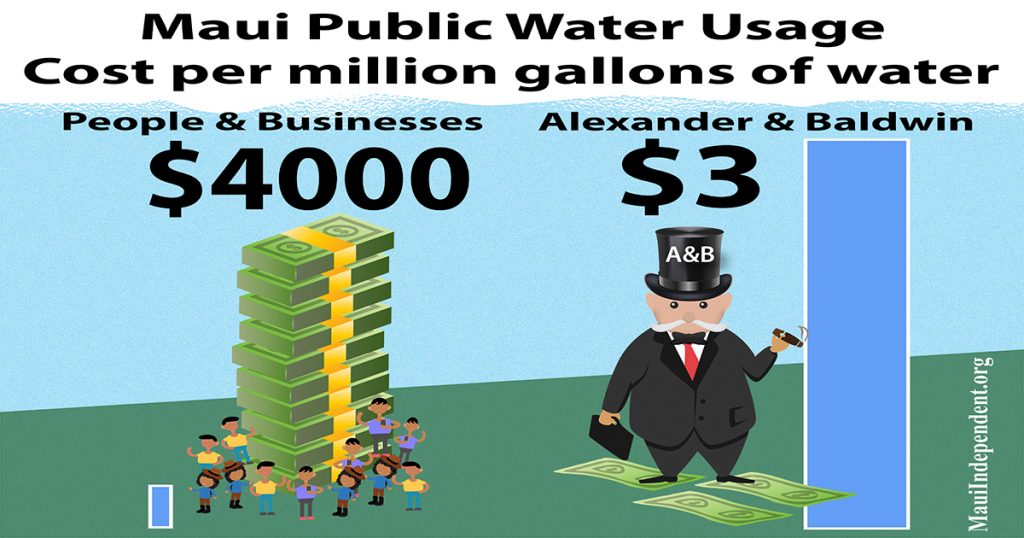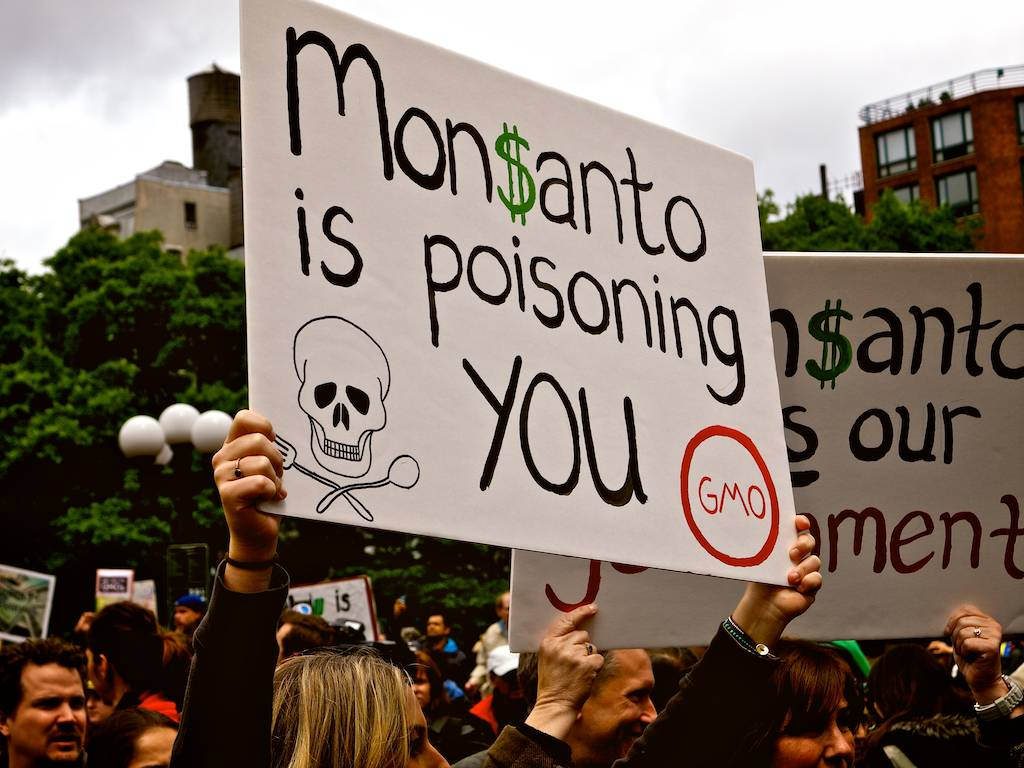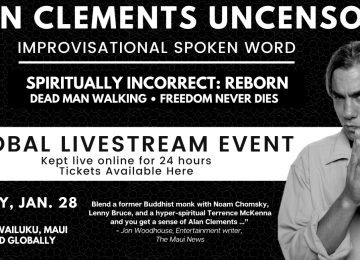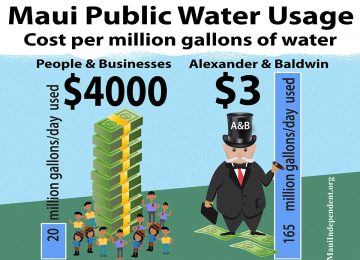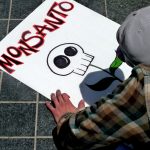A&B is set to increase GMO crop growing on Maui against the wishes of a majority of the island population who voted for a GMO moratorium in 2014. As part of their so called “diversified agriculture” plan, rather than devoting land to feed people, A&B is growing GMO Bt corn and sorghum on 140 acres of land for animal feed and bio energy. The corn/sorghum project is expected to expand to 500 acres with the addition of a GMO soybean crop.
The company will present their plan to the Maui County Council’s Policy, Economic Development, and Agriculture Committee on Tuesday at 9 a.m at 200 S. High St in Wailuku, The plan has inflamed local opposition. Water, soil and earth protectors are calling for supporters to come out and express their views during public comment.
“The whole point of making agriculture a decent part of your economy is to feed your people and to provide jobs,” says Autumn Ness of the Hawaii Center for Food safety. “A&B will do neither, with a large portion of our agricultural resources. Their plan hoards agricultural land, and water that belongs to kuleana farmers, all to grow stuff that we can’t eat.”
A&B’s corporate socialism
Through cronyistic plantation style contracts A&B continues to defy the will of the people. It is only because A&B has been granted access by the state to tens of billions of gallons of water at an outrageously discounted cost of around $3 per million gallons that they are able to grow whatever they like. Water rates for regular farmers on Maui are $1 for 1,000 gallons of non-potable water.
Because of their virtually unlimited access to nearly free public water, A&B can easily afford to grow crops like GMO corn for livestock, instead of more labor intensive (and job-creating) crops like vegetables. According to Pennsylvania State University’s College of Agricultural Science, a high yielding corn crop of 200 bushels per acre requires about 22 inches of water. One inch of water per acre is about 27,000 gallons per acre, so a 200 bushel corn crop uses about 594,000 gallons of water an acre. A&B will likely grow 3 to 4 crops of corn a year.
With 140 acres to start (which may expand to 500 acres), and one acre of corn using roughly 600,000 gallons of water per acre, three GMO corn crops per year will require about 250,000,000 gallons of water a year.
This amount of public water would cost a regular farmer, such as a native Hawai’ian growing a traditional food crop to enhance food sovereignty, about $250,000 a year. The price for the largest and wealthiest land development corporation in the state of Hawai’i under the current state-sanctioned water giveaway: just $750.
Would we mind if A&B was growing non-GMO corn to feed Maui families? Probably not.
At Tuesday’s hearing, water protectors will be insisting that the County Council members stand up for beneficial local agriculture by telling the Hawai’i State Water Commission that A&B needs to pay competitive water rates if they insist on growing crops that damage Maui’s environment. They will likely urge the Maui Council Agriculture Committee to vote on a resolution opposing the pending State Water Commission decision that would allow A&B to continue its century old theft of Maui’s public water.
The only leverage that the people of Maui and their elected officials have over what A&B plants on its former sugar plantations is how much public water they receive for agriculture in the future, and whether or not it will continue to be given away, or priced at its true market value.
Most genetically engineered crops are either engineered to produce their own pesticide in the form of Bacillus thurengiensis (Bt) or are designed to be resistant to herbicides, so that herbicides can be sprayed to kill pests and weeds without harming the crops.
GMO corn and sorghum means more pesticides sprayed on Maui land. Scientific American has reported on the experience of farmers in Brazil, where genetically modified corn seeds are no longer protecting Brazilian farmers from voracious tropical bugs, increasing costs as producers turn to pesticides. “Brazil’s government is concerned that planting the same crops repeatedly with the same seed technologies has left the agricultural superpower vulnerable to pest outbreaks and dependent on toxic chemicals.”
Across the U.S. farmers are discovering growing bug resistance to genetically modified corn, as the Huffington Post reports: New research adds to evidence that the effectiveness of popular genetically engineered traits used to protect corn and cotton from insects is failing, putting U.S. corn production potential in jeopardy, and spurring a need for increased insecticide use.
“With widespread use of genetically engineered crops, the targeted insects developing resistance to these protein is a major threat to the sustainability of the Bt technology,” said EPA researcher Dilip Venugopal. “The risk of damage to corn production across a large portion of U.S. is high.”
In 2009, Germany banned Monsanto’s MON810 corn. German Agriculture Minister Ilse Aigner announced the corn posed, “a danger to the environment.”
A recent study published in the Journal of American Science shows that Bt corn is toxic to rats, after rats were fed with GMO corn only for 91 days. According to the researchers at Suez Canal University in Egypt, GMO corn diet resulted in increased or decreased organs or body weight in lab rats. The researchers also discovered that GE corn caused changes in blood biochemistry that indicated possible toxicity.
Maui cattle growers are proud to market their grass fed beef. With A&B pushing their corn as feedstock, this could diminish the marketability of this top quality product to health conscious consumers.
“A&B doesn’t have a market for their GMO corn yet,” says Ness. “They can only have a successful GMO corn and soy operation if they can find local buyers for their harvest. Our local dairies and cattle ranchers need to know that if their operations are based on GMO corn fed cattle, we’re not buying it.
